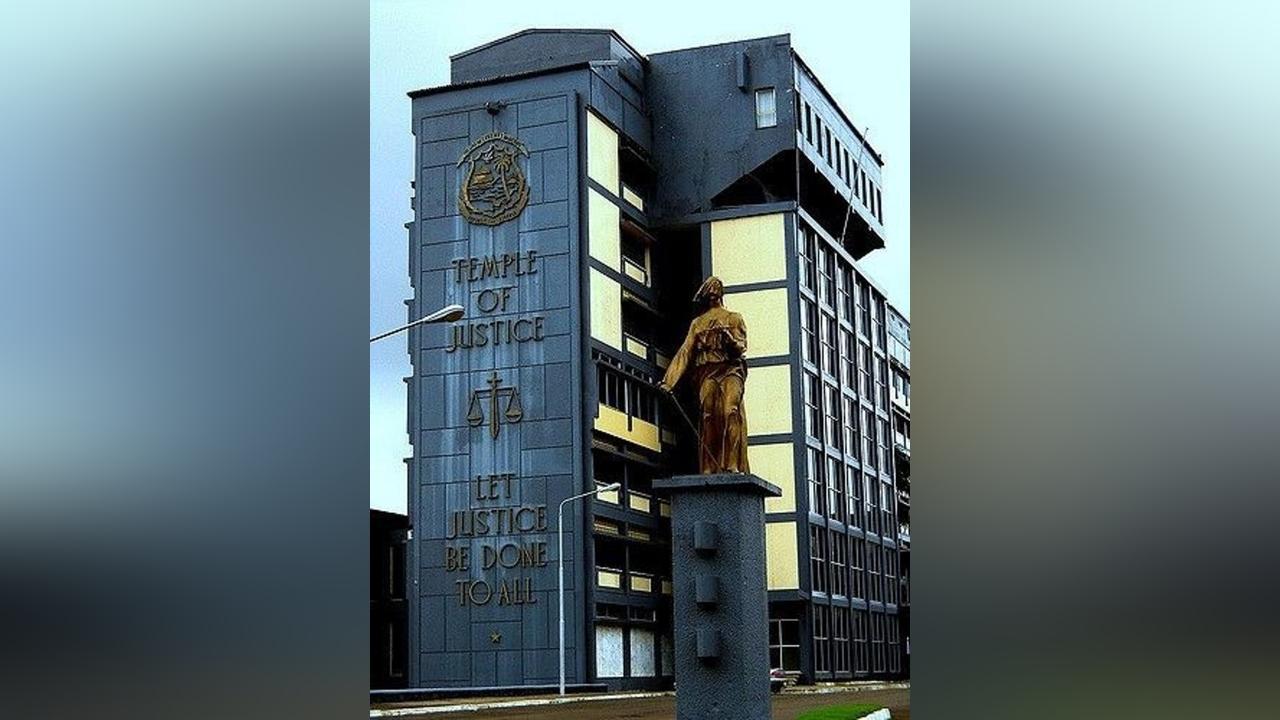Africa-Press – Liberia. The Judiciary In a press release circulated on Wednesday said the insufficiency of the current budget has a potential to hinder the judiciary ability to ensure fair, efficient and timely delivery of justice.
The Supreme Court has raised objections to the proposed $17 million and a one-off contingency amount of $3 million, constituting 2.8% of the 2024 national budget, allocated to the Judiciary Branch of Government.
The nation’s highest court deemed the allocation as “grossly inadequate”, asserting that it could impede the judiciary’s capacity to function optimally.
The Judiciary, in a press release circulated on Wednesday, said the insufficiency of the current budget, emphasizes its potential to hinder the judiciary’s ability to ensure fair, efficient and timely delivery of justice.
The concerns centers around the essential resources required for the judiciary to operate effectively, raising questions about the adequacy of the proposed budget allocation.
The statement, signed by Cllr. Darryl Ambrose Nmah, Sr, director of public information services, term the allocation as an imposition by both the Legislative and Executive Branches of Government on a Co-Equa Branch of the same government, which it is not prepared to accept.
According to Cllr. Nmah, whilst the Supreme Court acknowledges and upholds the power bestowed upon the Legislature to “make appropriations for the fiscal governance of the Republic as enshrined in Article 34(d) of the Liberian Constitution [1986], the Court has also upheld the long-standing principle of constitutional interpretation, which states in part, “the Constitution must be interpreted in light of the entire document rather than a sequestrated pronouncement, as every provision of the Constitution is of equal importance. None of the provisions of the constitution should be interpreted to nullify or substantially impair the other. provisions”
Nmah added that it is within this legal context that Chapter VII of the Liberian Constitution 1986] and the supporting statutes within the New Judiciary Law, impose a legal obligation upon the Judiciary Branch to effectively and efficiently manage the Supreme Court of Liberia and all of its administrative units, 22 Circuit courts across the 15 political subdivisions of this country along with its judge and staff, 75 Specialized Courts across the 15 political subdivisions of this country, with their judges and staff as well as 160 Magisterial Courts, also across the 15 political subdivisions of this country with their magistrates and staff in order to ensure that the Rule of Law prevails within the borders of Liberia.
The release further argues that the lack of adequate financial support to the Judiciary by National Government
over the years, has resulted to deteriorating infrastructure, lack of logistics and worsening conditions of service at the Judiciary.
He added it is substantially impairing the duty of the Judiciary Branch of Government as mandated by the
provisions of Chapter VII of the Liberian Constitution [1986] referred to supra.
“The Judiciary views the allocation of US$17 million and a one-off “contingency” amount of $3million, constituting 2.8% of the National Budget, as an imposition by both the Legislative and Executive Branches of Government on a Co-Equal Branch of the same government and an abuse of the power given the Legislature under article 34(d) of the constitution, in that, such appropriation undermines the function of another branch of government, which it is not prepared to accept.
“In the spirit of coordination and cooperation, meetings were held with the
leadership of the Legislature and the Presidency prior to the passage of this
year’s fiscal budget in which the Judiciary brought to the attention of its other two Co-equal Branches of the Liberian Government that the constant violation of the Financial Autonomy Act of the Judiciary Law, which consistently
relegated an entire branch of government to a mere department under the Executive Branch, was not only undermining the Rule of Law in Liberia, but also debasing a Co-equal Branch of Government.
“It appears evident, however, from the passage of the Fiscal Budget 2024, that
both the Legislative and Executive Branches of the Liberian Government are not prepared to regard the Judiciary as a Co-equal Branch of the same government with attending needs as they have elected to appropriate a meager 2.8% of the National Budget to the Judiciary (the 2nd largest branch), whilst the Legislative Branch (the smallest) allocates 13.84% to itself and 83.36% to the Executive Branch despite assurances made that such serious concerns of the Judiciary was going to be addressed, even if not in its entirety.”
This, the release adds “Judiciary views as unfair, unjust, and an attempt by the other two branches government to further reduce the Liberian Judiciary to nothing; a condition unacceptable to the Liberian Judiciary.”
For More News And Analysis About Liberia Follow Africa-Press






